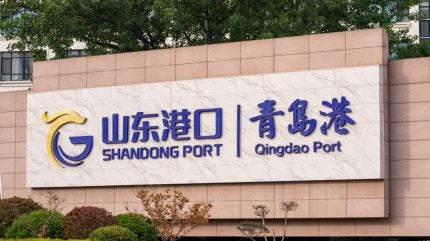
China’s Shandong Port Group has implemented a ban on US-sanctioned tankers from docking at its facilities, reported Reuters, citing three traders.
The move could affect oil imports and increase shipping costs for China’s independent refiners.

Discover B2B Marketing That Performs
Combine business intelligence and editorial excellence to reach engaged professionals across 36 leading media platforms.
The eastern Chinese province, a hub for many independent refiners, is a major importer of oil from countries currently under US sanctions.
The province’s imports from Iran, Russia and Venezuela amounted to approximately 1.74 million barrels per day last year, representing around 17% of China’s total oil imports, according to ship tracking data from Kpler.
If the ban is implemented, it could result in increased shipping expenses for Shandong’s independent refiners, which are the primary purchasers of discounted crude that has been sanctioned from three nations.
In December, Washington escalated sanctions on entities involved with Iranian oil, and President-elect Donald Trump is expected to further tighten sanctions on Iran after taking office on 20 January. This could slow down oil imports in China, which is said to be the world’s largest oil-importing nation.

US Tariffs are shifting - will you react or anticipate?
Don’t let policy changes catch you off guard. Stay proactive with real-time data and expert analysis.
By GlobalDataThe notice from Shandong Port, issued on Monday and verified by traders, prohibits services to vessels listed by the US Department of the Treasury’s Office of Foreign Assets Control.
Shandong Port oversees key ports such as Qingdao, Rizhao and Yantai, which are significant for importing sanctioned oil.
Despite the ban, Shandong Port predicts a ‘limited impact’ on independent refiners, as stated in a subsequent notice on Tuesday.
The port suggests that most sanctioned oil is transported on non-sanctioned tankers. This statement followed the docking of the sanctioned tanker Eliza II at Yantai Port in early January.
Vortexa estimates that in December, eight very large crude carriers, each with a capacity of two million barrels, offloaded mostly Iranian oil in Shandong. The sanctioned tankers included the Phonix, Vigor, Quinn and Divine.
Recent US Treasury sanctions targeted 35 tankers as part of Iran’s ‘ghost fleet’ of oil tankers and separately sanctioned Sovcomflot in early 2024. The US Government is also planning sanctions on more than 100 tankers involved in Russian oil, further tightening the shipping market.
The ban’s implications for Shandong refiners include potential cost increases, amid already challenging margins and slow demand.
Additional pressure on shipping availability may come from the US Defense Department’s recent addition of COSCO, China’s largest shipping company, to a list of companies working with China’s military. This could deter charterers from using COSCO’s tankers.





